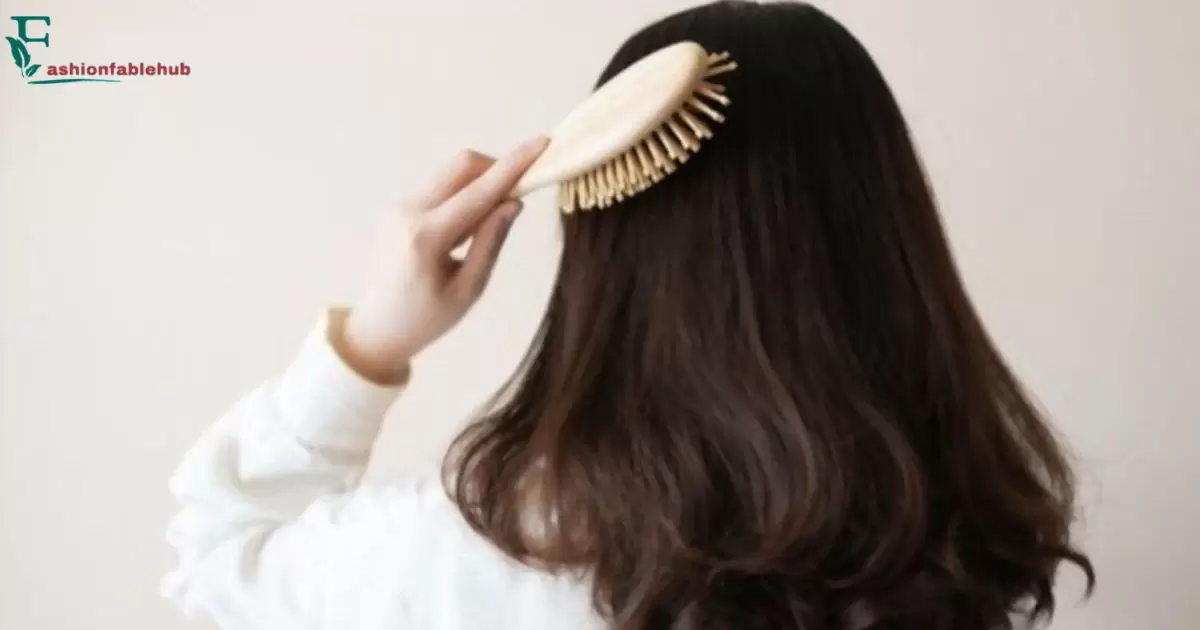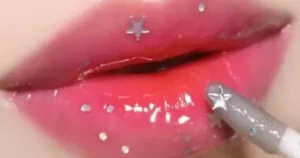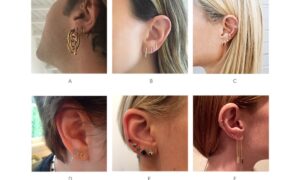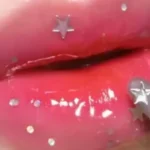Having waxy, greasy, or unclean-feeling Hair Feel Waxy can be frustrating, especially after you’ve just washed it. This issue can stem from various factors, including the quality of water, hair washing frequency, product residue, diet, and underlying health conditions. In this article, we’ll explore these potential causes and provide insights on how to combat and get rid of waxy hair.
What Causes Hair to Feel Waxy?
The waxy or greasy feeling in your hair can be attributed to several reasons, ranging from external factors to internal imbalances. Understanding the root cause is crucial in addressing the issue effectively.
Quality of Water and Temperature
The quality of water you use to wash your hair can have a significant impact on its texture and cleanliness. Hard water, which contains high levels of minerals like calcium and magnesium, can leave a residue on your hair strands, making them feel sticky or waxy. This mineral buildup can accumulate over time, leading to a dull and lifeless appearance.
Additionally, the temperature of the water you use can also play a role in maintaining healthy hair. Using excessively hot water can strip your hair of its natural oils, causing dryness and brittleness. On the other hand, using water that is too cool may not effectively remove all the dirt, oils, and product buildup, leaving your hair feeling waxy or greasy.
Washing Your Hair Too Often
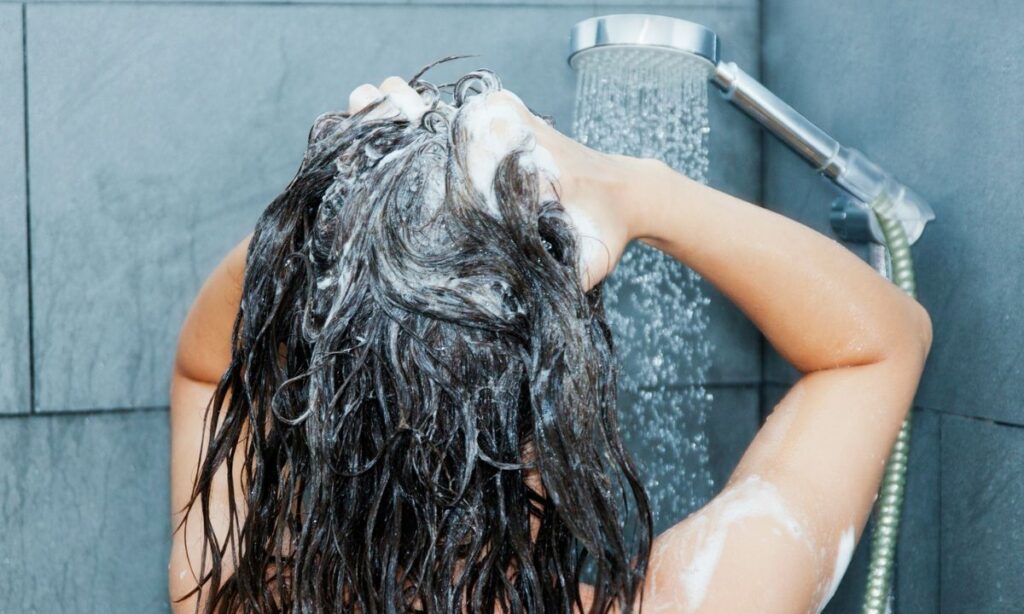
While maintaining good hygiene is essential, washing your hair too frequently can disrupt its natural oil balance. Overwashing can strip your hair of its protective oils, causing your scalp to overcompensate by producing excess sebum, leading to a waxy or greasy appearance.
Generally, it’s recommended to wash your hair every 2-3 days, depending on your hair type and activity level. However, it’s essential to listen to your hair’s needs and adjust your washing routine accordingly. Washing your hair too often can lead to a vicious cycle of overproduction of sebum, resulting in a persistent waxy feeling.
Product Residue and Harsh Shampoos
The products you use on your hair can also contribute to the waxy feeling. Using the wrong hair products or not rinsing them out properly can lead to a buildup of residue on your hair strands, creating a greasy or sticky sensation.
Products containing silicones, waxes, or heavy oils can be particularly problematic, as they can leave behind a coating that is difficult to remove, leading to a waxy buildup over time.
Additionally, using harsh shampoos that contain sulfates or other drying agents can strip your hair of its natural oils, leaving it feeling dry and prone to attracting more dirt and product buildup, which can eventually lead to a waxy texture.
Unhealthy Diet
Your diet plays a crucial role in the health and appearance of your hair. A diet lacking in essential nutrients like protein, vitamins, and minerals can lead to an imbalance in your body’s natural oil production, resulting in greasy or waxy hair.
Incorporating nutrient-rich foods like leafy greens, lean proteins, and healthy fats into your diet can help maintain a healthy scalp and hair. Adequate hydration is also essential, as dehydration can lead to an overproduction of sebum, contributing to a greasy or waxy feeling.
Combating Residue Ridden Hair
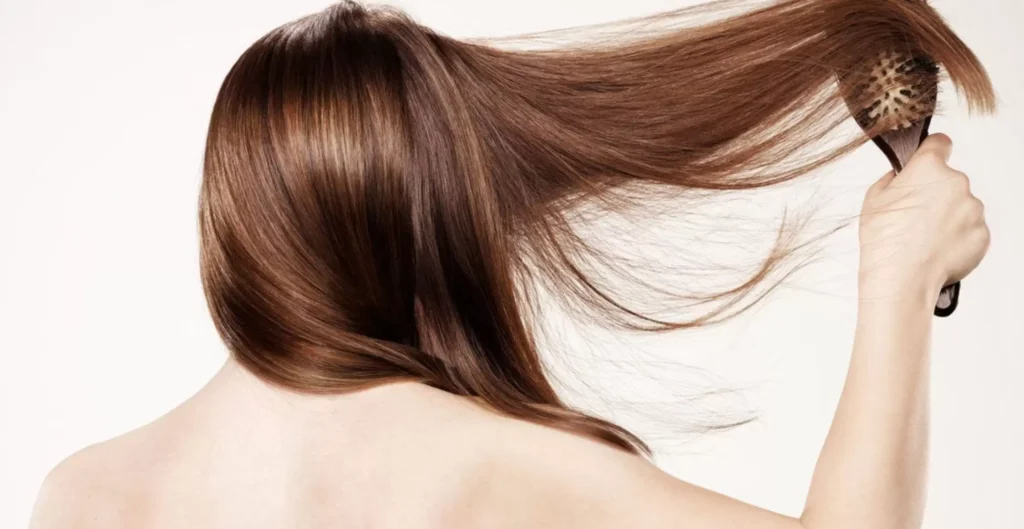
To combat the waxy feeling caused by product buildup or hard water residue, you can try the following methods:
- Clarifying Shampoo: Use a clarifying shampoo once a week or bi-weekly to remove stubborn residue and buildup from your hair. These shampoos are formulated with stronger cleansing agents that help dissolve and rinse away excess oils, dirt, and product residue.
- Apple Cider Vinegar Rinse: Mix equal parts of apple cider vinegar and water, and use it as a final rinse after shampooing. The acidic nature of apple cider vinegar can help remove buildup and restore your hair’s natural pH balance.
- Baking Soda Scrub: Create a paste by mixing baking soda and water, and gently massage it into your scalp and hair before shampooing. The abrasive nature of baking soda can help exfoliate and remove stubborn buildup.
- Ion Removers: If you have hard water at home, consider investing in an ion remover or water softener to reduce the mineral content in your water supply, which can help prevent mineral buildup on your hair.
How to Get Rid of Waxy Hair
To eliminate the waxy feeling and restore your hair’s natural shine and softness, follow these steps:
- Clarify your hair: Start by using a clarifying shampoo or baking soda scrub to remove any buildup or residue from your hair and scalp.
- Adjust your washing routine: Evaluate your hair washing frequency and adjust it according to your hair type and activity level. Avoid overwashing or using excessively hot water.
- Choose the right products: Opt for gentle, sulfate-free shampoos and conditioners that are tailored to your hair type. Avoid products containing heavy oils, waxes, or silicones that can contribute to buildup.
- Rinse thoroughly: Ensure you thoroughly rinse your hair after shampooing and conditioning to remove any product residue.
- Consider your diet: Incorporate nutrient-rich foods into your diet to support healthy hair growth and oil production.
- Address hard water issues: If you have hard water at home, consider installing a water softener or using a chelating shampoo to help remove mineral buildup.
- Deep condition regularly: Incorporate a deep conditioning treatment into your hair care routine to replenish moisture and nourish your strands.
Remember, consistency is key when addressing waxy hair. It may take some time and experimentation to find the right combination of products and techniques that work best for your hair type and lifestyle.
By understanding the root cause of your waxy hair and implementing the appropriate solutions, you can restore your hair’s natural shine, softness, and manageability.
Why does my hair not feel clean after washing?
Even after shampooing, you may still experience a waxy or unclean feeling in your hair. This can be due to various reasons:
Reason
Hard water
Product buildup
Overwashing
Harsh shampoos
Scalp conditions
Hormonal imbalances
Environmental factors
Explanation
High mineral content in hard water can leave behind residue on hair strands, making them feel coated or waxy.
Improper rinsing or using heavy, waxy products can lead to buildup that makes hair feel unclean.
Washing too frequently can strip natural oils, causing the scalp to overproduce sebum, resulting in a greasy feel.
Shampoos with sulfates or drying agents can disrupt the hair’s natural oil balance, leaving it feeling unclean or waxy.
Conditions like seborrheic dermatitis or psoriasis can cause excessive oil production, leading to a persistent greasy feeling.
Changes in hormone levels can affect oil production, making hair feel greasy or unclean.
Pollution, humidity, or excessive sweating can contribute to a greasy or unclean feeling in hair.
Why does Shea moisture make my hair feel waxy?
Shea moisture products are known for their natural and nourishing ingredients, including shea butter. However, some people may experience a waxy or greasy feeling after using these products, especially if they are not suited for their hair type or if they are using them incorrectly.
Here are some possible reasons why Shea moisture products may make your hair feel waxy:
- Heavy Butters and Oils: Shea moisture products often contain rich butters like shea butter, cocoa butter, and oils like coconut oil or olive oil. While these ingredients are deeply moisturizing, they can be too heavy for fine or thin hair types, leading to a greasy or waxy buildup.
- Product Overload: Using too much product or not rinsing it out thoroughly can cause residue to accumulate on the hair strands, resulting in a waxy texture.
- Buildup Over Time: Even if the products initially feel lightweight, continuous use without proper clarifying can lead to a gradual buildup of oils and butters, leaving your hair feeling coated and waxy.
- Incompatibility with Your Hair Type: Shea moisture products are designed for different hair types, and using a product that is not suited for your hair’s porosity or density can cause a waxy feeling.
- Environmental Factors: High humidity or excessive sweating can cause the heavy butters and oils in Shea moisture products to become overly greasy or waxy on your hair.
To combat this issue, try using a clarifying shampoo periodically to remove buildup, adjust the amount of product you use, and ensure you are thoroughly rinsing out the products. Additionally, consider using lightweight Shea moisture products designed for your specific hair type or alternating with lighter products to prevent excessive buildup.
Why is my hair so waxy after washing it?
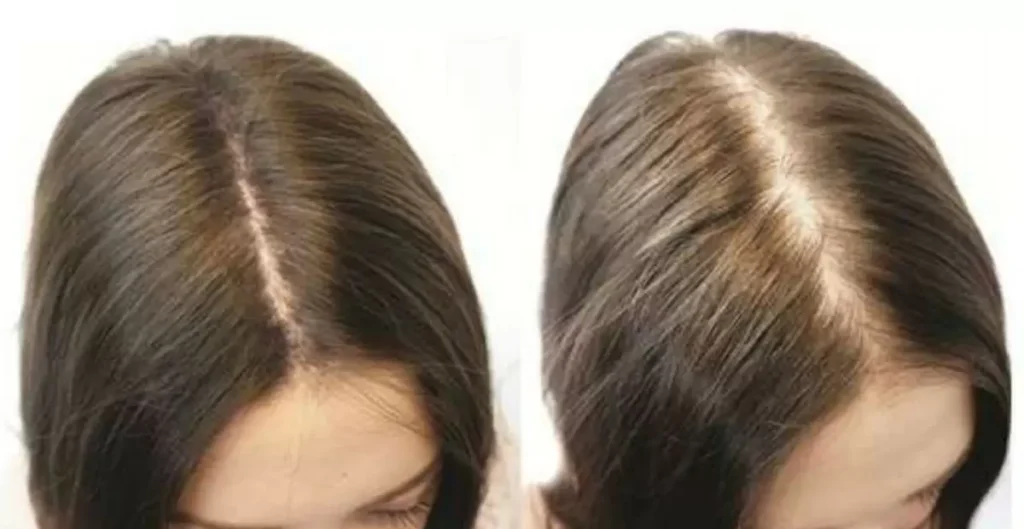
If your hair feels waxy or greasy immediately after washing it, there could be several reasons behind this issue:
- Hard Water: The minerals present in hard water can leave a residue on your hair strands, creating a waxy or coated feeling even after washing.
- Improper Rinsing: Not thoroughly rinsing out shampoo, conditioner, or other hair products can lead to product buildup, leaving your hair feeling waxy or greasy.
- Overwashing: Washing your hair too frequently can strip away natural oils, causing your scalp to overproduce sebum, leading to a waxy or greasy appearance.
- Harsh Shampoos: Shampoos containing sulfates or other drying agents can disrupt your hair’s natural oil balance, leaving it feeling unclean or waxy.
- Scalp Conditions: Certain scalp conditions like seborrheic dermatitis or psoriasis can cause excessive oil production, resulting in a persistent waxy or greasy feeling after washing.
- Environmental Factors: Pollution, humidity, or excessive sweating can contribute to a waxy or greasy feel in your hair, even after washing.
What health conditions cause greasy hair?
While occasional greasiness or a waxy feeling in hair can be caused by external factors, persistent greasy hair can also be a symptom of certain underlying health conditions. Here are some common health conditions that can contribute to greasy or oily hair:
- Hormonal Imbalances: Hormonal fluctuations, such as those experienced during puberty, pregnancy, or menopause, can cause an overproduction of sebum, leading to greasy hair. Conditions like polycystic ovary syndrome (PCOS) and thyroid disorders can also disrupt hormonal balance and affect sebum production.
- Seborrheic Dermatitis: This chronic skin condition causes an overactive sebaceous gland, resulting in excessive oil production and greasy, flaky skin on the scalp, face, and other areas.
- Parkinson’s Disease: Some individuals with Parkinson’s disease may experience excessive sweating and increased sebum production, leading to greasy hair and skin.
- Malnutrition or Nutritional Deficiencies: A diet lacking in essential nutrients like vitamins B6, zinc, and certain fatty acids can disrupt the body’s ability to regulate sebum production, causing greasy hair.
- Stress and Anxiety: High levels of stress can trigger hormonal changes that increase sebum production, contributing to greasy hair and skin.
- Certain Medications: Some medications, such as birth control pills, corticosteroids, and certain antidepressants, can have side effects that include increased oil production and greasy hair.
- Metabolic Disorders: Conditions like diabetes, hyperthyroidism, and obesity can affect hormone levels and sebum production, leading to greasy hair and skin.
Conclusion
Having waxy, greasy hair can be frustrating, but understanding the root causes is the first step toward finding an effective solution. External factors like hard water, product buildup, overwashing, and the wrong hair care products can all contribute to a waxy texture. However, internal issues like an unhealthy diet, hormonal imbalances, or underlying health conditions may also be to blame.
By addressing these potential causes through lifestyle changes, dietary adjustments, medical treatment if needed, and implementing a tailored hair care routine, you can restore your hair’s natural shine, softness, and manageability. Remember, consistency is key when combating waxy hair, as it may take some trial and error to find the right combination of techniques and products that work best for your unique hair type and concerns.
With patience and the right approach, you can say goodbye to that unwanted waxy feeling and embrace healthy, gorgeous locks.

As a seasoned fashion enthusiast with over 6 years of hands-on experience, I’m dedicated to sharing my expertise and passion for all things hair and earrings.
